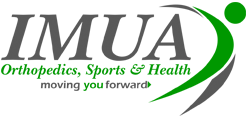Did you know that pain and discomfort chewing foods could result in eating fewer healthy foods like fruits and vegetables? As we age, staying healthy is an active event that requires our full participation and it can start with good oral health and hygiene. Keeping our teeth and gums healthy means we can chew our food more easily, delay the need for dentures, and maintain confidence in our smile!
Chewing our food thoroughly is important. When we are able to chew our food into small pieces before swallowing, it means we digest our food better. Better digestion means more nutrients from our diet move from digestive tract into our bodies, which helps to keep our energy levels high. When we are unable to chew food well due to pain or lack of teeth, it may affect our decision to choose healthier foods like fresh fruits and vegetables, whole grains, and tougher to chew meats. Overtime, this could result in nutritional deficiencies that leave us less vibrant than we could be. Long-term nutritional deficiencies can also impact the development of chronic disease and accelerate the aging process. Optimally, our diet should include a variety of textures and flavors from fresh and cooked whole foods. When we can’t chew as well, we may gravitate toward softer foods that may not offer all the nutrients and fiber we need for a healthy body.
Delay the need for dentures. We live in an age where missing teeth can be replaced with partial or full dentures, but are fake teeth as good as your natural ones? Most adults agree that dentures are harder to take care of and research tells us they affect our ability to chew our food well. If we have impaired saliva production, these issues with dentures and chewing will be made even worse. By delaying the need for dentures, we save ourselves the inconvenience of losing our teeth!
Maintain a confident smile. Keeping a positive self-image is not just for the young, but also for the young of heart. When we have fewer natural teeth, we might be less apt to smile and this may be our underlying motivation for maintaining good oral health. Whether you have your full set of teeth or not, it’s important to keep your smile by adopting a diet rich in raw and cooked fruits and vegetables, unprocessed whole grains, organic dairy and meats, and healthy fats from fish, nuts/seeds, olive oil, and avocado. If you cannot eat a variety of foods, it might be worthwhile to talk to your doctor or dietitian on nutritional supplements that can ensure you are getting all the nutrients you need.
As we age, there is no doubt we become more susceptible to tooth decay and therefore must pay more attention to lifestyle factors that can affect the health of our teeth and gums. Small changes in lifestyle and diet can have big meaning to our oral health, and our oral health can have a big impact on our overall health! Make sure to attend your regular dental checkups and ask your hygienist for tips on how to maintain optimal oral health.
Reference:
Walls, A. (2016). Nutrition and Geriatric Oral Health. Retrieved on August 28th 2016 at: http://www.geriatricoralhealth.org/topics/topic08/default.aspx








